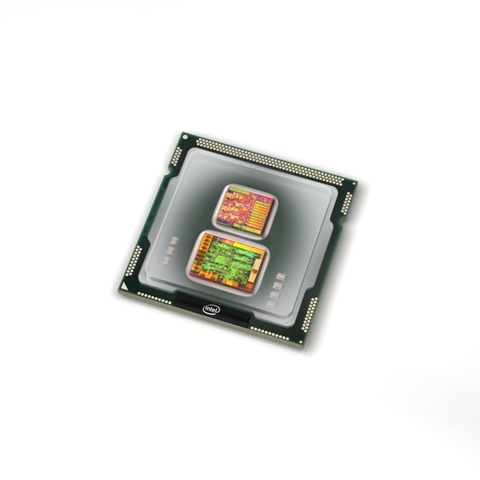As he looked for a new notebook recently, JOHN HARRIS discovered that even chip giant Intel believes that the confusion caused by computer jargon is a problem.

It’s reassuring to learn that computer companies sometimes find tech jargon as bewildering as us, their customers.
Back in the day, understanding the bits used to build a personal computer (PC) was reasonably easy.
The microprocessor – also called a chip or CPU (Central Processing Unit) – is the “brain” of the PC, receiving, sorting and sending a stream of instructions that turn elaborate circuitry into a useful tool.
Intel, the architect of microprocessor technology, set the pace and other chipmakers followed.
Each new generation of chips had a higher number – 80286, 80386, 80486 – with the speed of each generation of chips measured by its megahertz rating.
Then came the 1993 launch of the Pentium chip and the wheels fell off this convenient convention.
The name Pentium – as with the Pentagon, derived from the Greek word for “five” – was intended to denote Intel’s 80586 generation of chips. Intel ditched the five-digit descriptions because it couldn’t trademark numbers.
Confusingly, the name Pentium has existed ever since, although the power and performance of chip technology has increased inexorably every year, along with the arrival of other obtuse names such as Celeron and Xeon.
Adding mystery to this mix is the advent of multi-core microprocessor technology, which allow chips to “process” more than one instruction at a time. This has led to names such as Core 2 Duo, Core 2 Quad and Core 2 Extreme.
Even Intel recognises it has all got extremely tricky for customers to understand.
Recently, Intel’s National Marketing Manager Kate Burleigh admitted as much during an interview about who’s who in the microprocessor zoo. “Intel knows it is a problem,” she said.
“We’ve moved to simplify the branding because it was too hard for people to keep up with. We now have three main product names - Core i3, Core i5 and Core i7 – in which Core i3 is the current entry-level chip and Core i7 will always signify the best.
“In 2011, we’re going to launch a new range of products with the same branding, but they will be designated as the 2011 models, so the year will differentiate the latest. I think it’s a good strategy that will eliminate a lot of the confusion.”
Sadly, while these new names simplify the Intel marketing message, some old names will continue to muddy the waters a bit.
Pentium processors are still found in computers costing less than $700, as are Core2 Duo chips, although the latter are being phased out. Likewise, Celeron will retain its place at the budget end of the buying line.
However, if you want the latest and greatest chip technology, look to Core i5 and Core i7 chips, which include Turbo Boost technology.
Like the inverter on an air-conditioner, Turbo Boost throttles back the chip if you don’t need full power, which extends the running time for a battery-powered notebook.
For me, though, the best thing about this chip-branding simplification is that I only need to understand it every few years when I buy a new PC. Otherwise, it would still do my brain in.
John Harris is managing director of Impress Media Australia. Email jharris@impress.com.au.
Related News
- Bearing the burden of greatness Love it or hate it, technology is changing our world. In this glass-half-full column, JOHN HARRIS looks at one of South Australia's great technology lovers, who turns 80 on Monday....
- Microsoft and Google bang on the iPhone door After a year of addiction to his iPhone, JOHN HARRIS is now glancing askance at the plethora ofnew generation handsets promised in 2010.After a clear run since 2007, Apple’s iPhone...
- The bummer about Obama’s success After the incredible success of Barack Obama's technology-powered campaign for the White House, JOHN HARRIS looks at how the same tools can be debased for political deceit. I blame...
- Who took the fun out of technology? JOHN HARRIS wonders how he changed from cyber trailblaizer to technical timidity. It's hard to remember when the joy went out of computing. It was after...












